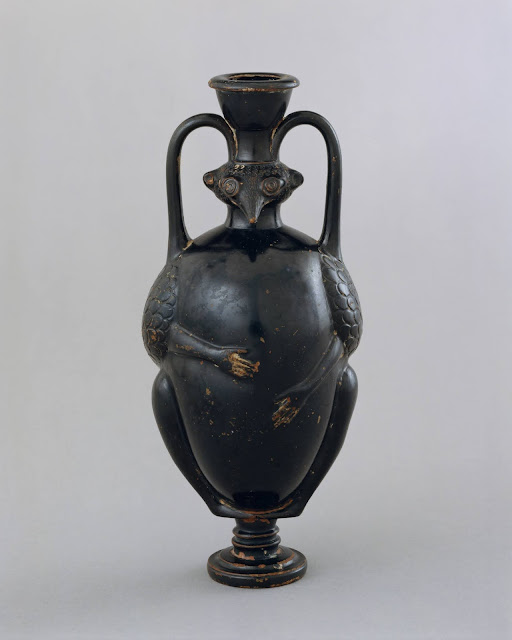Aristophanes: Comedian or Social Agitator?
Aristophanes, known as "The Father of Comedy" and "the Prince of Ancient Comedy was a comic playwright of ancient Athens and a poet of what has been called Old Attic Comedy. Eleven of his forty plays survive virtually complete. Born in 446 BC, his works, with their pungent political satire and abundance of sexual and scatological innuendo, effectively define the genre today. Aristophanes lampooned the most important personalities and institutions of his day, as can be seen, for example, in his buffoonish portrayal of Socrates in The Clouds, and in his racy anti-war farce Lysistrata. His plays consistently espouse opposition to radical new influences in Athenian society. He caricatured leading figures in the arts (notably Euripides, whose influence on his own work however he once grudgingly acknowledged), in politics (especially the populist Cleon), and in philosophy/religion (where Socrates was the most obvious target). Such caricatures seem to imply that Aristophanes was an old-fashioned conservative, yet that view of him has led to contradictions.
Aristophanes has been said to recreate the life of ancient Athens more convincingly than any other author. His powers of ridicule were feared and acknowledged by influential contemporaries. Plato singled out Aristophanes' play The Clouds as slander that contributed to the trial and subsequent condemning to death of Socrates.
Aristophanes' second play, The Babylonians (now lost), was denounced by Cleon as a slander against the Athenian polis. It is possible that the case was argued in court, but details of the trial are not recorded and Aristophanes caricatured Cleon mercilessly in his subsequent plays, especially The Knights.
Image: Terracotta amphoriskos (flask) in the form of a bird-man, late 5th century B.C.E., Greek Attic, at the Metropolitan Museum of Art. This extraordinary vase of a bird-man, of high technical quality, is unique among the examples of Attic black-glazed pottery known today. It almost certainly relates to Aristophanes' well-known comedy The Birds (first produced in 415/414 B.C.E.) and may represent the costume that would have been worn by members of the chorus in the fifth century B.C.E.




Comments
Post a Comment